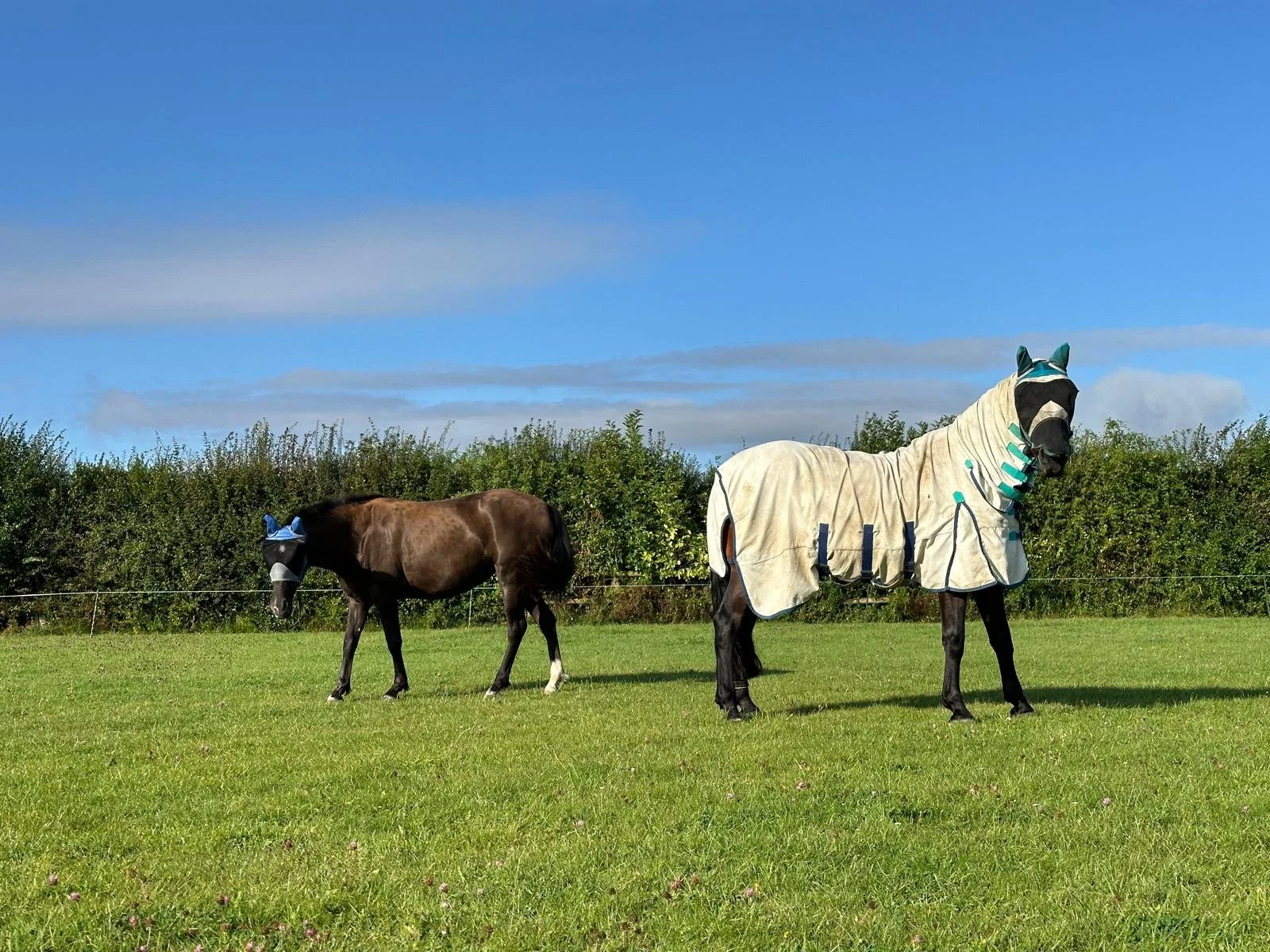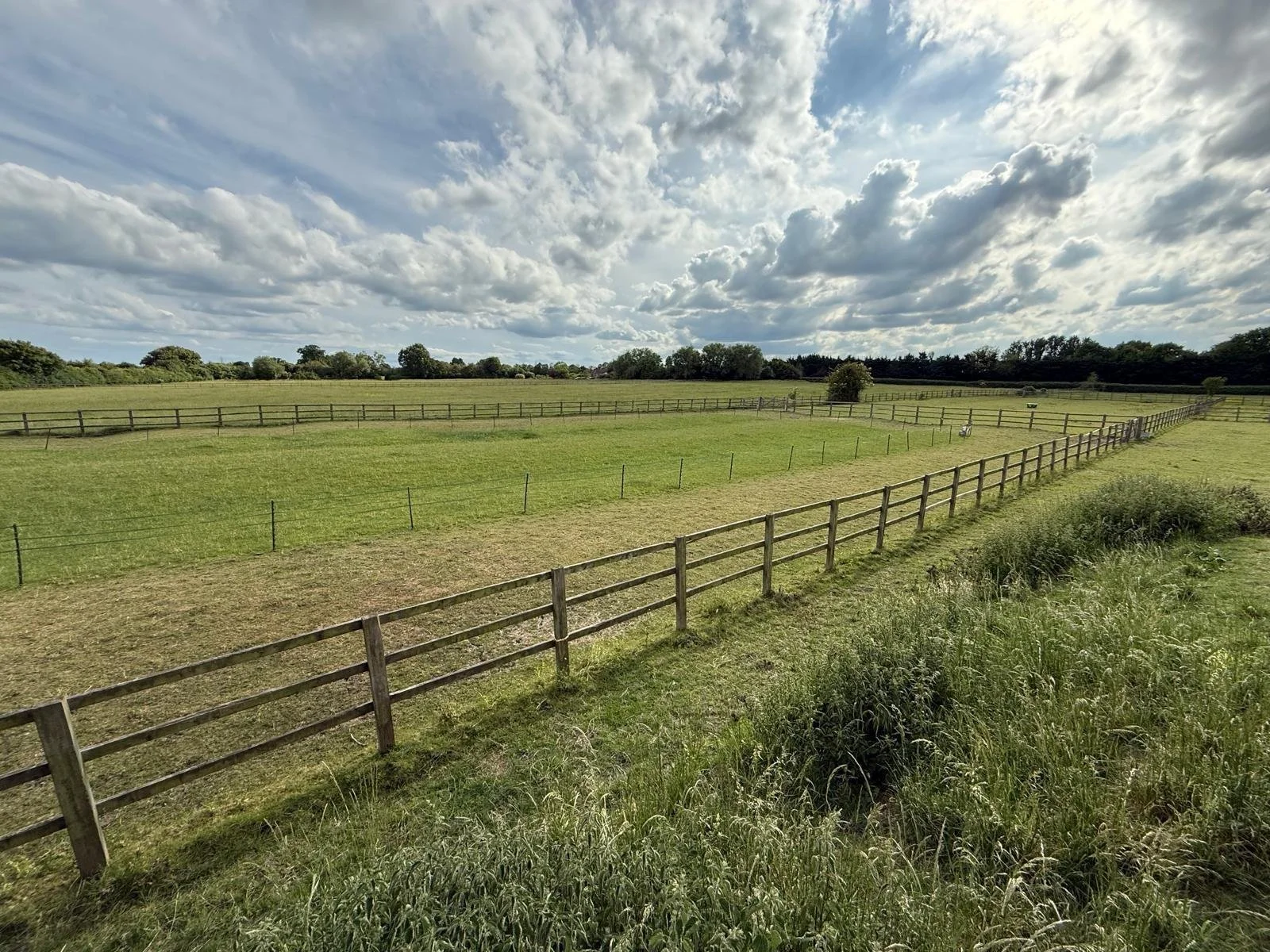PRE-disposed to insulin dysregulation - why Spanish horses struggle with grass
My first experience of a severe allergic reaction in my horse was in 2021. It followed an episode of nasty fly bites and resulted in a very itchy horse who self-harmed, traumatising himself by itching and scratching his skin. Once started, the itch-scratch cycle was hard to break.
A year later, when the exact same thing happened, I began to wonder if something else was going on too. My hypothesis: that itchy summers were not just the result of sweet itch, but actually a response to grass and sugar ‘spikes’ associated growth in Spring and Autumn.
Andalusian horses are known - both for their incredible temperaments - but also for their ability to ‘live on air’ as they gain weight easily and often look somewhat ‘baroque’. Consequently, they are a candidate for EMS - or Equine Metabolic Syndrome - which in our case - seemed to develop around the age of 10. What I ‘thought’ was sweet itch: the constant itch scratch cycle brought on by an allergic response to Culicoides (biting midges) - was probably only partly that.
The other part was a reaction to grass sugars leading to extreme itching and weight gain, resulting in fat pads either side of the spine, around the shoulders and a cresty neck. Changes were quick to occur but very slow to reverse.
What is Equine Metabolic Syndrome (EMS)?
The term EMS is used to describe horses who are predisposed to obesity (generalised or regionalised), hyperinsulinemia (excessive insulin in the blood), and insulin resistance - where the body’s cells become less responsive to insulin, resulting in high blood sugar and insulin levels.
Andalusian horses are one of several breeds predisposed to this condition - and consequently at risk of developing laminitis if EMS is allowed to progress. Careful management in needed, particularly in terms of diet and access to pasture.
C wrapped up in his sweet itch rug on short but sugary grass resulting in some itching.
Personal Observations
Following allergy testing in 2022 - which confirmed C was allergic to all forms of biting insects, including midges but also dust mites - our vet recommended living out full-time all year round in a bid to avoid the unavoidable dust of stables and barns.
Living out, we can wrap C up in a sweet itch rug to protect him from the midges, keep him moving and keep him away from dust!
He’s absolutely loved it, and is very content to be in a field in nearly all weathers. But managing his weight has remained a challenge. Spring grass surges bring with them weight gain and - with bursts of new grass growth or a move to new pasture - comes the itch-scratch challenge.
It was inmmediately obvious there was an itch response to new fields (more grass = more sugar). Any move to longer grass resulted in an itchy horse (managed in part, with the help of anti-histamines) - and as the grass reduced, the itchyness very obviously subsided.
In the summer of 2025, we’ve had so little rain the grass hasn’t grown at all!
It’s been an interesting experiment as in order to preserve and protect winter grazing, I’ve created a small track system to minimise my herd’s impact on the land. It’s meant very little grass and supplementation with low sugar haylege and soaked hay.
The difference is clear: I’m still using antihistamines (belt and braces!) but my horse is a LOT less itchy than previous year on grass paddocks. His weight is also much more consistent - no fat pads and no cresty neck.
More importantly, he’s not trying to poke his eyes out on the fence.
Yes, there’s some itching and scratching - some of which I think is simply habitual - but in the main, he is calm and happy, if a little lethargic. Getting the balance right is tricky.
Our DIY track system: this field is used by the horses at night, with an adjacent field with mound (where I’m standing for this photo) being used in the daytime to aid enrichment.
How to feed an EMS horse
A diet low in NSCs (non-structured carbohydrates) can help to support a horse with EMS / Insulin dysregulation and it’s important to speak with your vet and/or equine nutritionist to come up with a suitable plan for your horse. Maintaining a healthy hind-gut is paramount.
As C has multiple allergies and is often reactive (itchy) in response to alfalfa, we’ve been on a learning curve for the past three years to come up with a diet that works for him. I avoid any feed with alfalfa, molasses and garlic.
Following an inflammatory respiratory response in Winter 34/Spring 25, we have now moved to commercially bagged low sugar haylage to reduce inflammation caused by dust spores in unsoaked traditional baled hay. It’s been brilliant, but expensive!
Having tried and tested a number of options, we found HorseHage Timothy (purple bag) and HorseHage High Fibre (blue bag) worked the best. It’s brilliant stuff, smells delicious and even I would eat it.
However, as my horses live in a herd of three this proved quite pricey, so I’ve trialled a number of alternative options and for now, settled on dust extracted hay and haylage supplied via Gemma Hippperson Hay and Haylage.
I can order by the palette and delivery takes between 3-10 days (although for me it’s always been with us in under 5 days - which is a brilliant service). The hay is analysed at under 7.5% sugar and the haylage at under 5.0%, which is some of the best I’ve found.
The horses prefer the hay as its sweeter, and I’ve been soaking it in the hot weather which they have loved, but happily eat the haylage and it means they can be munching for longer, keeping their tummies happy and healthy.
I also give my horse a bucket feed - the key compoents of which are Thunderbrooks Healthy Herbal Chaff and Simple Systems Malle Mash - aimed at itchy horses and horses with Mallenders, Sallenders and COPD. Mine love it.
To that I add a range of herbs and supplements subject to their individual needs, but this provides a really good base. The ‘herb emporium’ as my husband calls it, is definitely a topic for another blog!
Disclaimer: I am not an equine nutritionist so if you are considering changing your horses feed, please do speak to an expert.


